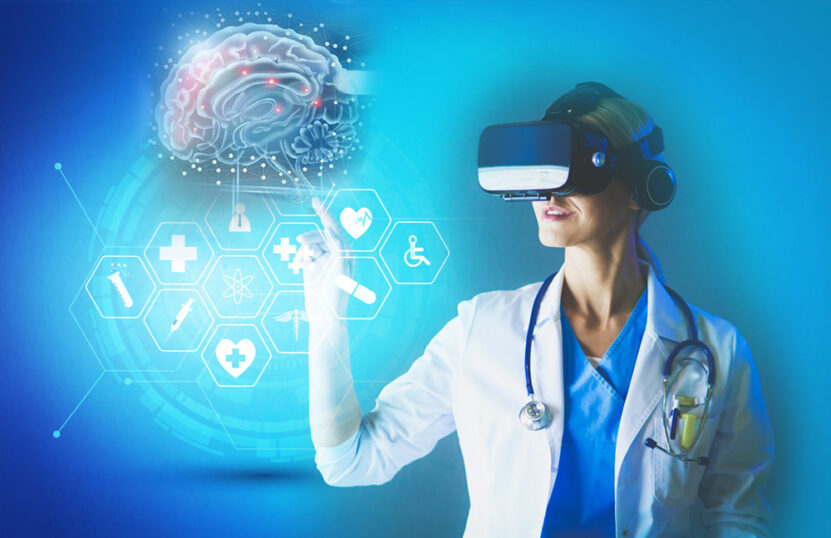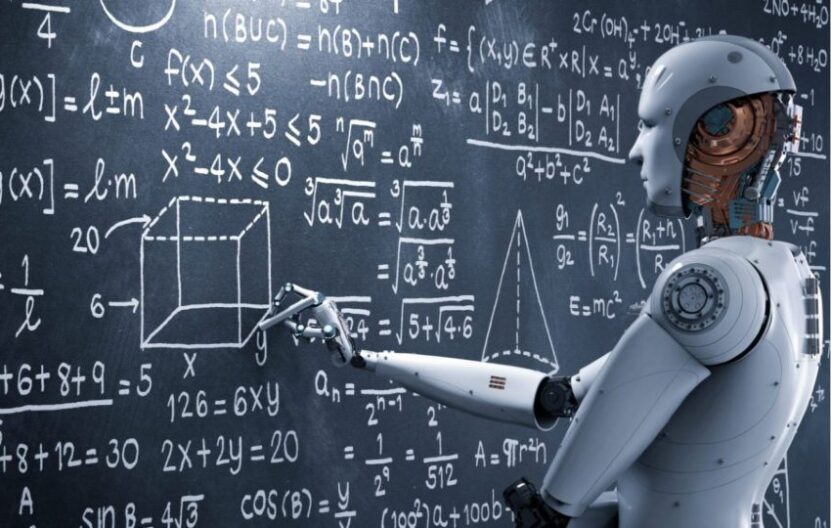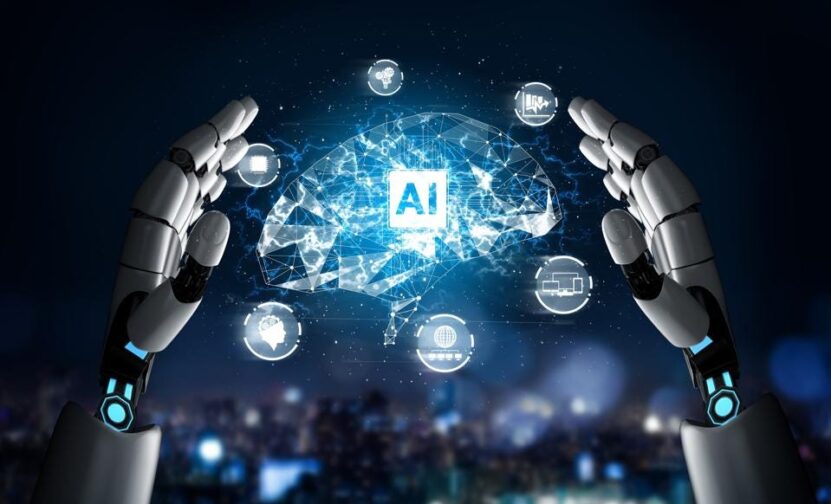Artificial Intelligence (AI), a fascinating subfield of computer science, is dedicated to creating intelligent machines capable of performing tasks that ordinarily require human intellect. From pattern recognition to decision-making, AI has a spectrum of capabilities that mimic the complexity of the human mind. More than just a high-tech buzzword, AI represents a significant leap forward in the marriage of technology and human-like cognitive abilities.
AI is fast becoming an integral part of many industries worldwide. With its potential to streamline operations, elevate customer experiences, and even redefine the nature of work itself, the artificial intelligence revolution is not a thing of the future – it’s here, and it’s transforming the landscape of modern industries. From healthcare to finance, manufacturing to retail, no sector is untouched by the AI wave. Let’s dive deeper into the transformative journey AI is carving across different industries.
Healthcare Industry

In the healthcare sector, artificial intelligence is no less than a boon. This industry has been an early adopter of AI, transforming how diseases are diagnosed and treated. Sophisticated AI algorithms analyze heaps of medical data to identify patterns that could indicate the early onset of diseases. This revolutionizes early detection and significantly increases patients’ chances of survival. For instance, Google’s AI tool LYNA has been shown to detect breast cancer with an astonishing accuracy rate of over 99%, a testament to the potential of AI in disease diagnosis.
Additionally, AI’s role in personalizing medicine is phenomenal. By delving into a patient’s genetic makeup and lifestyle habits, artificial intelligence systems provide treatment plans tailor-made to an individual’s needs, leading to more effective and efficient healthcare outcomes. IBM’s Watson for Oncology is a shining example of AI’s role in developing such personalized treatment plans for cancer patients.
Medical imaging analysis has also seen a significant upgrade with artificial intelligence. AI-powered machine learning algorithms swiftly sift through thousands of images, identifying anomalies such as tumors with a higher degree of accuracy than the human eye. This leads to more reliable diagnoses and targeted treatment plans.
Financial Sector
The financial industry has warmly embraced AI, particularly for its utility in fraud detection and prevention. By minutely examining transactional data, artificial intelligence systems can identify suspicious activities and alert authorities promptly. This immediate response mechanism minimizes financial losses and boosts security. Additionally, AI systems, using historical data and market trends, suggest investment opportunities to individuals and companies, facilitating better financial decision-making.
Customer support, a critical aspect of the financial sector, is also benefiting from artificial intelligence. AI-powered chatbots, such as Bank of America’s Erica, can process thousands of customer queries simultaneously, providing quick and accurate responses 24/7. This greatly enhances customer satisfaction, decreases wait times, and reduces operational costs.
Online Casinos and Gambling Industry

The online gambling and casino industry is another area ripe for AI-driven transformation. AI’s primary role in this sector is enhancing user experience and creating a fair, secure, and transparent gaming environment. Machine learning algorithms can customize gaming experiences, tailoring game recommendations based on a player’s preferences, betting history, and even skill level. On the security front, AI can flag fraudulent activities and suspicious betting patterns, maintaining the integrity of online platforms. Furthermore, AI chatbots can provide 24/7 customer service, addressing inquiries and providing support instantly. Thus, AI is set to revolutionize online gambling, making it more personalized, secure, and engaging for users. If you want to check out the profession which is currently ongoing you can do so by clicking here.
Manufacturing Industry
Artificial intelligence has breathed new life into the manufacturing sector. Its role in predictive maintenance – predicting when equipment might fail and scheduling maintenance accordingly – has minimized downtime, reduced costs, and enhanced productivity. Additionally, AI-powered autonomous robotics are transforming production lines, performing mundane tasks more efficiently, eliminating human error, and freeing up human resources for complex problem-solving tasks.
Moreover, artificial intelligence is refining supply chain and logistics management. By predicting demand, optimizing delivery routes, and managing inventory, AI streamlines processes, leading to increased efficiency, lower costs, and improved customer service.
Transportation Sector
AI’s role in the transportation sector is transformative. It’s leading us towards an era of self-driving vehicles, with companies like Tesla and Waymo at the helm. This AI-driven innovation promises safer roads by minimizing human error, easing traffic congestion, and improving fuel efficiency.
Artificial intelligence also enables predictive maintenance in transportation fleets, pre-empting potential mechanical issues before they cause substantial downtime. For passengers, AI-powered interfaces offer an elevated customer experience, offering personalized travel information, and automated ticketing systems, providing a seamless travel experience.
Retail Industry
In retail, artificial intelligence is making waves with personalized marketing, offering product recommendations based on a customer’s browsing history, purchase history, and preferences. This increases customer engagement and boosts sales. AI-powered chatbots are also enhancing customer support, offering immediate responses to queries, and improving customer satisfaction.
AI systems are playing a significant role in inventory management and demand forecasting, optimizing supply chain operations, and ensuring stores are adequately stocked based on predicted demand.
Education Sector

Education is undergoing a metamorphosis with AI. AI-driven personalized learning platforms adapt to a student’s learning pace and style, providing an individualized learning experience that enhances comprehension and retention. AI-driven grading systems save teachers significant time, while AI-powered tutoring offers one-on-one instruction, optimizing the learning process.
Agriculture and Farming
Agriculture is experiencing a revolution with AI. Precision farming, crop health monitoring, and soil condition analysis are all possible thanks to AI, resulting in optimized irrigation, pesticide use, and higher crop yields. AI-powered drones offer a bird’s eye view of farmland, helping to detect pests, diseases, and nutritional deficiencies, leading to more informed farming decisions.
Entertainment and Media
In entertainment and media, AI is powering content recommendation systems, creating personalized playlists, and even generating content. AI algorithms have the potential to generate news reports, write scripts for movies, TV shows, and significantly contribute to the creative process.
Energy and Utilities
In the energy sector, AI is helping predict infrastructure failures, optimizing energy consumption based on usage patterns, and managing grids more efficiently. It’s also aiding in the successful integration of renewable energy sources, pushing the sector towards sustainability.
Legal and Compliance
The legal sector is experiencing transformational change with AI. With the capability to analyze thousands of legal documents, AI helps find relevant information, predicts case outcomes based on historical data, and monitors compliance with regulations. This leads to more efficient legal practices and improved accuracy in decision-making.
Challenges and Future Prospects of AI in Various Industries

Despite AI’s widespread adoption, challenges persist. Ethical concerns, potential biases in AI applications, and workforce implications are significant obstacles. Yet, the future of AI is promising, with advancements in quantum computing, neural networks, and AI ethics looming on the horizon.
